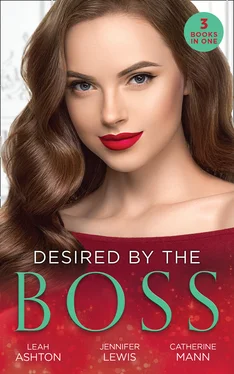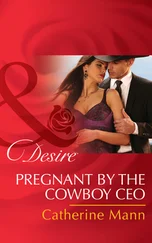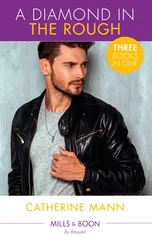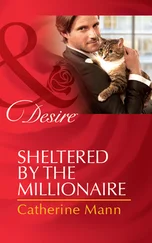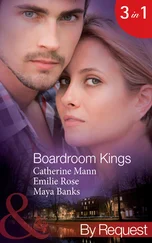His mum, though, still smiled her luminous smile.
When Hugh had turned four, the birthday parties had clearly begun.
There was Hugh playing pass the parcel, sitting on top of an oriental-style rug with his friends. Or playing pin the tail on the donkey. This photo was a wider shot, showing Hugh from the side, blindfolded and with his arm outstretched. Beyond him was a small kitchen, where a row of parents stood, some observing their kids, others chatting to each other.
The room was very neat, the kitchen bench clear but for trays of party food. In fact in all these early photos every room was tidy. April knew that careful angle selection could make the messiest room appear tidy, but she didn’t believe that was the case here. There wasn’t one cardboard box, or any pile of useless random things to put inside one, anywhere to be seen.
When had it started?
April flipped ahead through the photos, trying to work it out.
In the end it was that sideboard behind the dining table that told the story.
In front of that blue-painted wall it gained items year on year. At first neatly. More books, more photos, more trinkets, a small vase, a snow globe. But each item had definitely been carefully placed.
By the time Hugh had reached age seven the shelves were stuffed full. So many books jammed in horizontally and vertically. Photos in mismatched frames along the top. A few more trinkets...fat ivory candles. A carved wooden horse.
But still neat. Organised chaos.
By Hugh’s ninth birthday it was just chaos.
Books were randomly stacked with pages outwards. The vase had been knocked over and damaged, but it still remained on its side in multiple pieces. Paper had now appeared on the shelves: envelopes with plastic windows, sheets of paperwork...piles of magazines.
In the background of a blurry photo of kids dancing—musical statues?—April spotted a cardboard box. Just one. Beside it was a stack of newspapers, and beside that a stack of books.
But in the photo of Hugh and his mum together she was still smiling. Her hair was still lovely, her eyes sparkling. Hugh was smiling too, looking up at his mum.
April’s throat felt tight and prickly.
It seemed impossible, given she’d now spent weeks surrounded by the hoard, but until now she hadn’t really thought about the actual compulsive hoarding that must have occurred for this house to be in this state.
Maybe because the house was very neat—for a house full of boxes. And April associated hoarding with those unfortunate people you saw on television documentaries, with rotting food and mountains of rubbish. Vermin. This place wasn’t like that.
But that didn’t mean accumulating all this junk was normal.
April went back to the photos. For Hugh’s tenth birthday there had been no party. Possibly he just hadn’t wanted to have one, but April doubted it.
There weren’t any party photos the year after, or any of the years after that.
Instead it was just pictures of Hugh and his mum and—in the background—more and more boxes...

‘Boxes suck as party decorations.’
Hugh’s voice made April jump.
Her stool wobbled dramatically, and his hand landed firmly at her waist, steadying her.
She was wearing a chunky knitted jumper with a wide neck. The wool was soft against his fingers and the shape of her waist a perfect fit against his palm. But he made sure his hand dropped away the instant the chair was still.
A moment after that April practically leapt from her seat, turning to face him.
‘I didn’t hear you,’ she said, unnecessarily.
Her gaze roamed over him—just briefly. He was wearing his normal uniform of sorts: jeans, T-shirt, hoodie, trainers. Completely unremarkable.
And yet he sensed April’s appreciation. She liked how he looked.
Although hadn’t he known that since he’d helped her out of that stripy top? He’d certainly appreciated how April looked from the moment he’d first seen her.
Today was no different.
She wore light-washed jeans, and her jumper was pale lemon, oversized and slouchy, revealing much of her golden shoulders and a thin silver chain at her neck. Her dark hair was scraped back from her face in a high ponytail. It was neater than normal—probably because it was early in the day, and all those rogue strands hadn’t had the opportunity to escape.
He gave himself a mental shake. It wasn’t important. Wasn’t he supposed to be annoyed with her?
That was what he’d meant to do when he’d walked into the kitchen to find April so absorbed in those photos that she hadn’t heard his approach. He’d meant to ask her, What the hell are you doing?
Although, he reflected, that would have been a dumb question.
She was looking at photos. Duh.
But why? There was no need any more. The photos were his responsibility now. And something about having her look through them felt...almost intimate. Crazy when a few days ago she’d done the same thing with his school photos and he hadn’t cared.
Or at least hadn’t let himself care. He’d still been telling himself the photos were worthless and meaningless to him, after all.
But that hadn’t been true.
So maybe that was why his instinctive reaction was anger—anger that she’d been looking at images he now accepted meant something to him. Just what they meant he could work out later. They were his, and they were private photos. None of her business.
But by the time he’d gone to speak he hadn’t been angry at all.
Boxes suck as party decorations.
‘You stopped having birthday parties,’ April said, reading his mind.
‘Yeah,’ Hugh said.
He stepped closer to the bench, picking up a bundle of the photos she’d been studying with such concentration. He’d dump them in the box to take down to his flat. He would go through the photos later. It had been nice of April to offer to help him, but it wasn’t necessary.
‘I didn’t notice at first,’ he said. ‘You know...all the clutter, I mean. I was a kid. It was just my house. When I was old enough to tidy I kept my room pretty neat, but the rest of the house... I don’t know. Like I said, it was just my house.’
Hugh hadn’t intended to continue the conversation. At all. And yet—he continued.
‘The other kids didn’t notice either. Why would they? Their parents may have, but I wouldn’t have known, and Mum never would’ve cared.’
‘Really?’ April asked with raised eyebrows.
Hugh shook his head. ‘No. At first it wasn’t that bad, and my mum had always been pretty forthright about people accepting each other for who they were. She figured if the house was a bit untidy what was the big deal?’
‘But you didn’t like it?’
‘No,’ he said. ‘And it just got worse. And as kids get older they notice things. I had a friend over one day after school, before it got really bad, and he had a box fall on him while we were playing. He was fine, but I remember his mum talking to my mum in this really low, concerned voice, asking if she was okay and if she’d like some help. My mum didn’t like that. She laughed, I remember, and said she’d just had a busy week and really needed to get all the stuff to the charity shop.’
He was flipping through the photos, but not looking at them.
‘That was a lie. I knew she was never going to do that. Although I suppose maybe she was telling herself that she would one day. I don’t know. But—anyway—my mum never lied. Ever. And that combined with the other mum obviously thinking something was wrong... Well, then I knew something was wrong. So I didn’t have anyone over again.’
Читать дальше
